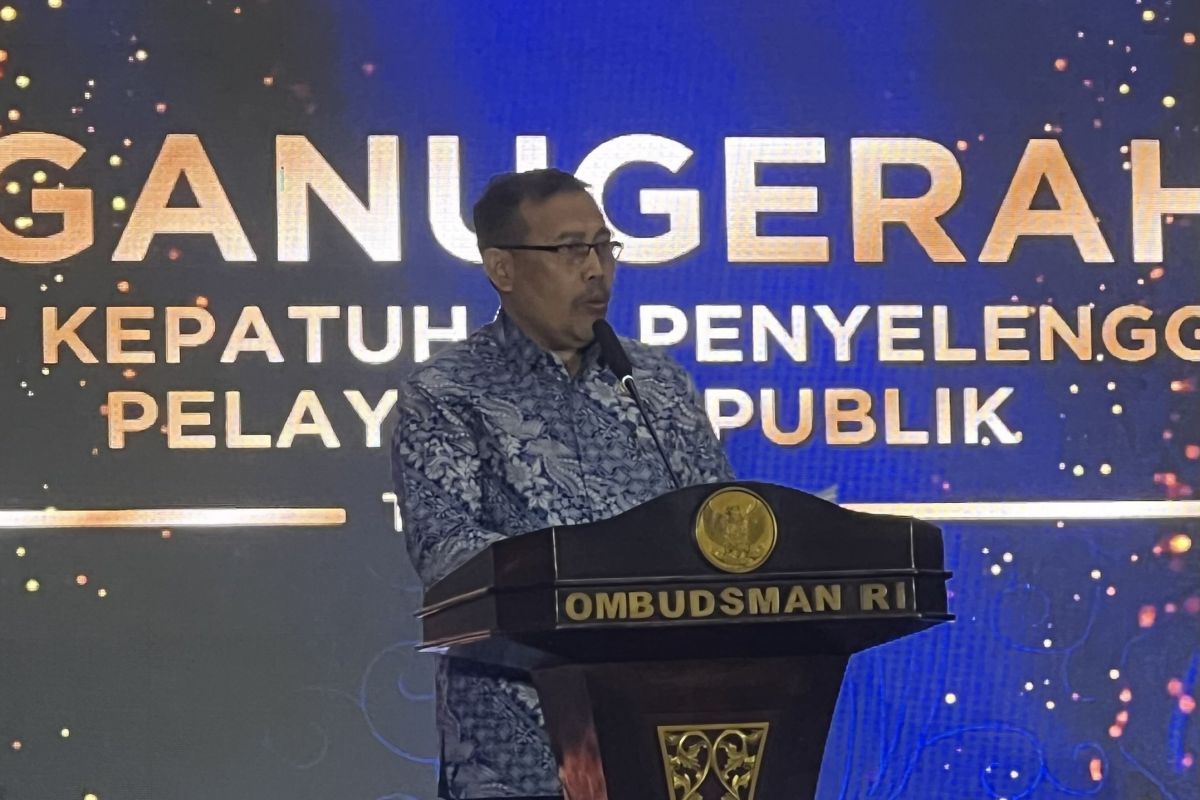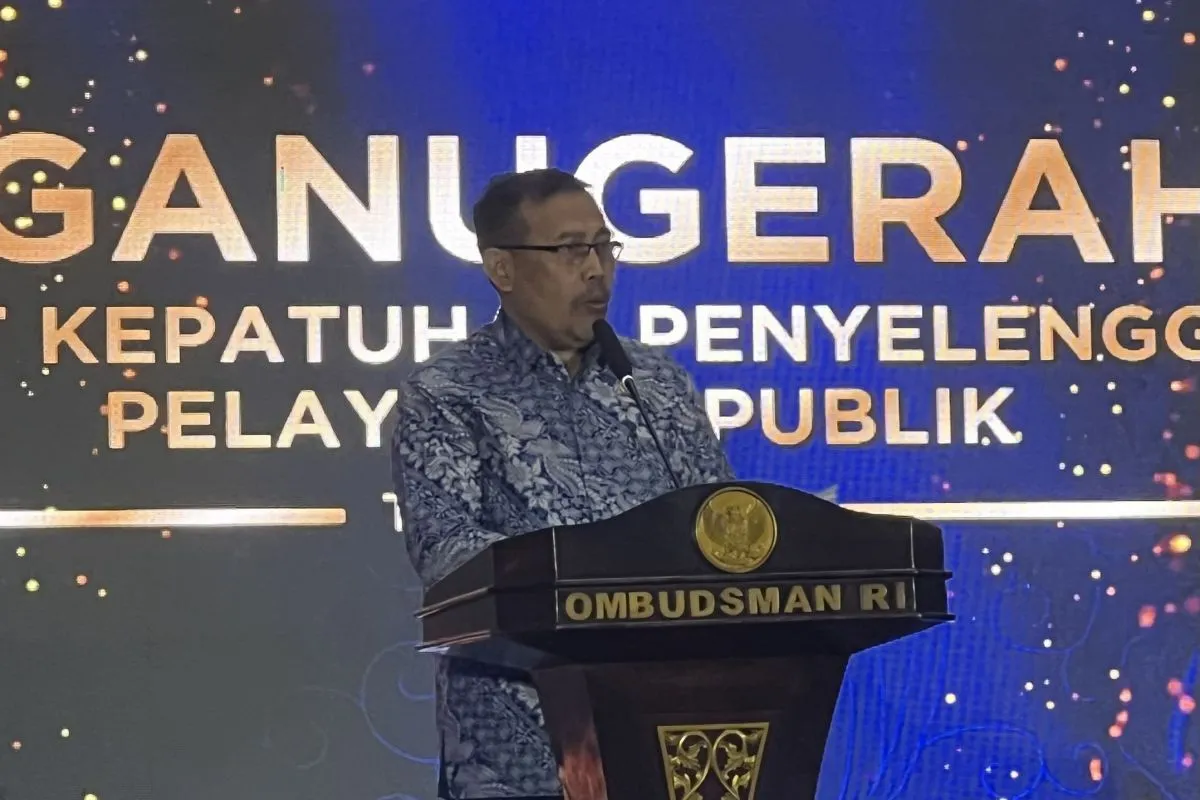Jakarta (ANTARA) - Chair of the Indonesian Ombudsman Mokhammad Najih has said that the quality of public services in 2024 has improved significantly compared to 2021.The improvement is reflected in the number of public service providers in the Green Zone category, which has increased drastically from 179 in 2021 to 494 in 2024, he told participants of the 2024 Public Service Compliance Assessment Awarding Event here Thursday.
According to Najih, this achievement is the result of a strong commitment from all stakeholders to provide public services as per laws and regulations.
"This success is not only a figure but also reflects a fundamental change in the culture of service in various institutions," he observed.
In the institution category, out of the 14 institutions assessed, 11 are in the Green Zone while 3 are in the Yellow Zone. The top three institutions in the category are Statistics Indonesia (94.99), the Food and Drug Supervisory Agency (94.94), and the National Narcotics Agency (93.22).
Then, among provincial governments, out of the 34 provincial governments evaluated, 28 are in the Green Zone, 5 are in the Yellow Zone, and 1 is in the Red Zone.
The three provincial governments with the highest scores are North Sulawesi (98.63), Central Java (98.21), and Yogyakarta (97.22).
Furthermore, out of a total of 98 city governments assessed, 94 are in the Green Zone and 4 are in the Yellow Zone. The top three are Magelang City (99.61), Surakarta City (99.14), and Yogyakarta City (98.91).
Baca juga: Pakistani mayors keen to emulate Jakarta's one-stop public service
Meanwhile, 339 out of the 416 district governments assessed are in the Green Zone, 55 are in the Yellow Zone, and 22 are in the Red Zone.
The three district governments with the highest scores are Wonogiri (99.71), Sukoharjo (99.36), and Tuban (99.03).
Baca juga: Taking dengue vaccine is still optional for public
"Even though the number of providers in the Red Zone has decreased from 92 in 2021 to only 23 in 2024, we must continue to work hard to ensure that no public service is left behind," Najih said.
He added that the significant decrease reflects the success of various initiatives that have been implemented.
However, he said, to eliminate the Red Zone, ongoing collaboration and high awareness among all public service stakeholders are needed.


